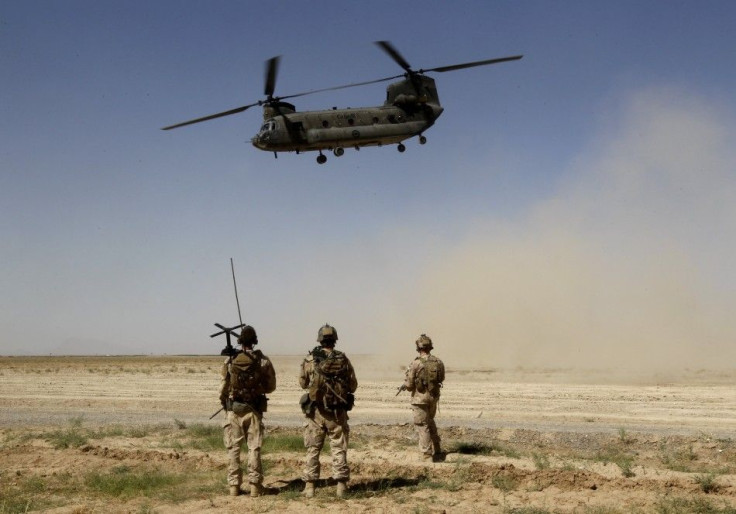Navy SEALs Afghanistan: General Says Crash Happened During Pursuit, Not Rescue

Contradicting earlier official reports, the top American commander in Afghanistan told reporters that the 17 Navy SEALs killed alongside 13 other U.S. troops and eight Afghan commandos were not on a rescue mission, The Daily reported. Instead, their helicopter came under fire after they had been called in to chase fleeing Taliban fighters.
"As this mission unfolded, we saw some significant success occurring on the objective itself, but there were elements that were escaping," U.S. Marine Corps Gen. John Allen, the commander of American and International forces in Afghanistan, told reporters on a conference call. "And in the course of their attempt to depart the objective, we committed a force to contain that element from getting out
"And of course, in the process of that, the aircraft was struck by an RPG [rocket-propelled grenade] and crashed," he said.
Initial reports said that the SEALs, which included members of SEAL Team Six, the unit that killed Osama bin Laden in a May Pakistan raid, and remaining troops rushed to the mountainous area in eastern Afghanistan to help a U.S. Army Ranger unit that was under fire from insurgents.
But when Allen spoke to reporters, he made no mention of a rescue operation or whether the Army Ranger request for backup justified the use of the highly trained SEAL team, leaving many questioning the decision to deploy the Special Ops team.
"The Rangers weren't in imminent danger," a Special Operations officer in Afghanistan, who spoke on condition of anonymity, told the National Journal.
Another Special Forces soldier, who served in Afghanistan, told the Washington Times: "It was simply uncalled for, unless Rangers were being overrun and the ground situation required this much operational risk."
When asked why so many SEALs were dedicated to backing up a force not in imminent danger, Allen said, "All the decisions that are made are made based on the unfolding mission, and in fact that was the decision that was made at that particular moment. And I'm so comfortable that that was the right decision to be made at that time."
This week, the Department of Defense announced that Army Brig. Gen. Jeffrey Colt would lead the investigation into the fatal crash - the single deadliest attack loss of life for U.S. forces in the decade-long war in Afghanistan.
The names of the 30 Americans killed in the crash, despite security concerns raised by the U.S. Special Operations Command, which overseas Navy SEAL and Army Delta Force operation, were released by the Department of Defense Thursday.
© Copyright IBTimes 2024. All rights reserved.





















